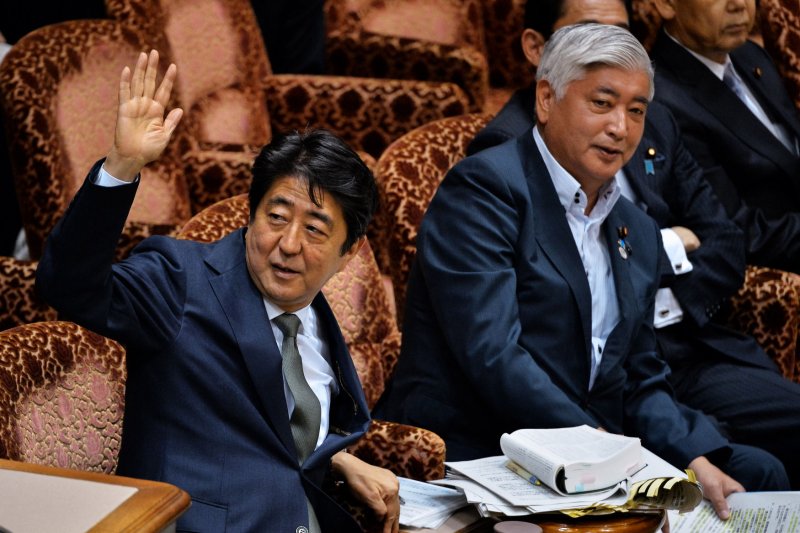TOKYO, Sept. 21 (UPI) -- New Japanese laws reversing the nation's status as a pacifist nation have been met with skepticism, however U.S. experts say there is little reason to expect the Self-Defense Forces to be used overseas any time soon.
Sheila Smith, a senior fellow for Japan studies at the Council of Foreign Relations, says Japan is facing little pressure to utilize their armed forces abroad.















